Thinking about keeping a pet in the UK?
This post is here to provide you with valuable information and guidance to make the process of getting a pet easier!
How to Keep a Pet in the UK?
If you want to keep a pet in the UK, you can either adopt or buy one. Adoption is a great option because you can give a home to a pet in need. Look for local animal shelters or rescues, visit them to meet the animals, and go through the adoption process. It may involve filling out an application, having a home visit, and paying an adoption fee. It’s a win-win situation!
If you prefer to buy a pet, do your research to find reputable breeders or sellers. Take the time to learn about different breeds, visit breeders to see their facilities and meet the parent animals. Make sure to ask for health clearances and proper documentation. Be careful of puppy mills or sellers who don’t treat animals well. Remember, owning a pet comes with responsibilities and costs, so think it through before making a decision.
No matter how you get your furry friend, the most important thing is to provide them with a loving and safe home. They’ll bring so much joy and love into your life!

How to Adopt a Pet in the UK?
When it comes to bringing a new furry friend into your life, pet adoption is a beloved and popular choice in the UK. The nation has a deep affection for animals, and adopting a pet is highly encouraged across the country.
Pet Charities in the UK
Animal welfare holds a special place in the hearts of the British people, thanks to various organizations and initiatives dedicated to the well-being of animals. One notable organization is the RSPCA (Society for the Prevention of Cruelty to Animals), which has been at the forefront of protecting and caring for animals since its founding in 1824. Through their relentless efforts, the RSPCA has played a significant role in shaping the nation’s outlook on animal welfare and promoting the adoption of rescued pets.
Beyond the RSPCA, the UK is home to a multitude of pet charities and shelters, each with its own unique history and mission. These charities offer dogs and cats of various ages and breeds for adoption. While they may require a small administrative fee for services like microchipping and vaccinations, they ensure that the pets are in good health before finding them a loving home. Additionally, they provide valuable guidance to new pet owners, helping them understand the basics of responsible pet ownership. Some charities even offer a month’s worth of pet insurance.

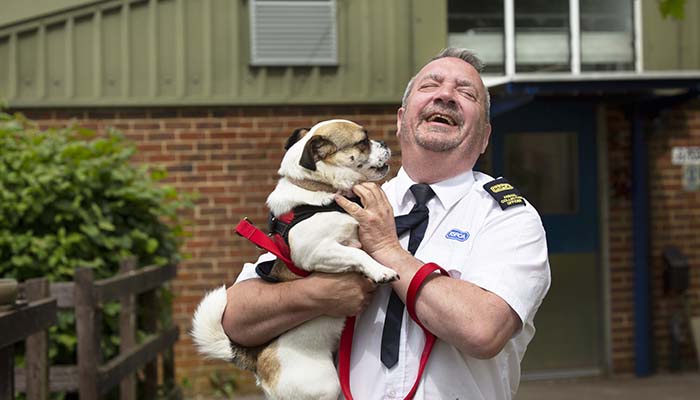
Adoption Process in the UK
However, the adoption process is not overly simple. Pet organizations have thorough procedures in place.
Let’s take the RSPCA as an example: To adopt a small animal, you must first register and undergo a vetting process to determine your eligibility. This involves a pre-home check and a post-home check. During the pre-home check, specialists from the charity will interview you to assess your character, financial situation, and suitability as a pet owner. They want to ensure that you have a caring nature, a safe environment, and the means to provide for the pet’s needs.
If you pass the interview phase, the next step is an on-site visit. The charity representative evaluates your home environment to ensure it is suitable for the specific animal you wish to adopt. If you rent your home, you may need consent from your landlord. Once you successfully pass these checks, you can proceed with the formal adoption process at the pet charity.
After you bring the animal home, the journey doesn’t end there. A post-home check will be conducted within 12 weeks by the charity to ensure that you are providing proper care and that the animal is thriving in its new environment. This follow-up check ensures the well-being of the adopted pet and provides ongoing support to you as a responsible pet owner.
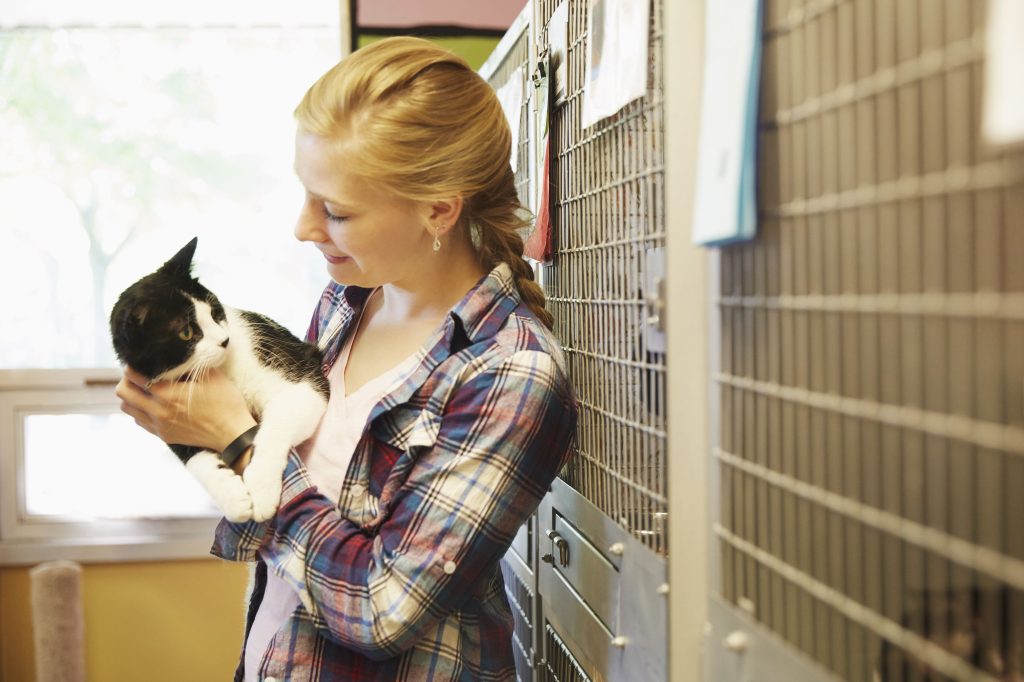
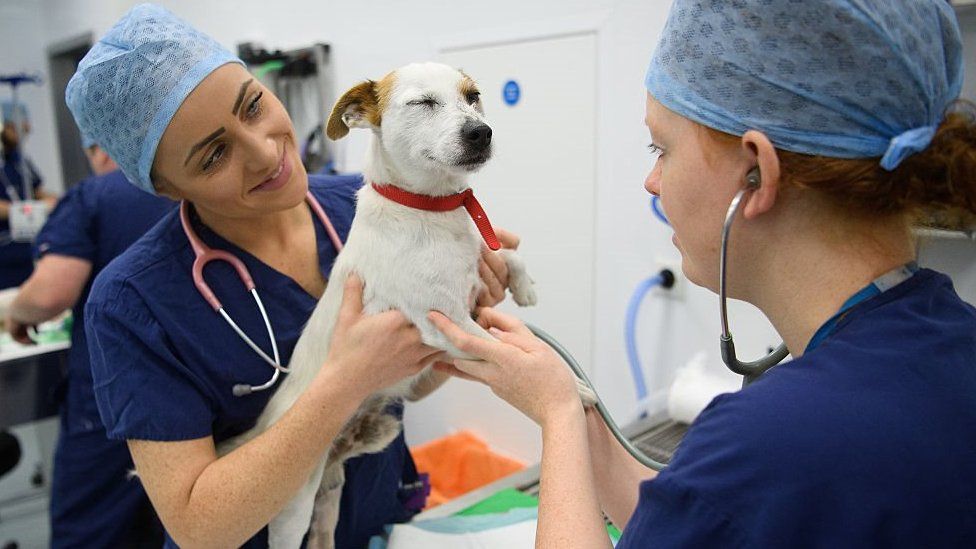
How to Buy a Pet in the UK?
Buying a pet online is another option apart from adoption, and it’s quite different from the traditional pet trading places you might find in some countries.
When you choose to buy a pet online, it’s usually because you’re looking for a specific purebred cat or dog. The people who specialize in selling these pets are called breeders. These breeders take great care of their animals, often participating in competitions and winning prizes. Once their beloved pets have offspring, the breeders put them up for sale on the internet, with prices ranging from a few hundred to several thousand pounds, depending on the breed.
You’ll typically find photos and some information about the pet you’re interested in. If you’re captivated by a particular pet, you can get in touch with the breeder through the provided phone number or email address to arrange a visit to their home. Sometimes, due to high demand, you may even need to book your visit months in advance.
Some breeders have additional requirements, such as asking for two letters of recommendation. One should be from a veterinarian near your home, ensuring that you have the capability to provide the necessary medical care for the pet. The other letter should come from a friend who knows your work and daily routine, verifying that you have the time and love to devote to caring for the pet. This process helps ensure that the person buying the pet is genuinely committed to providing a forever home, as breeders prefer not to sell their pets if there’s a risk of abandonment.

Health Issues About Your Pet
When it comes to the health of your pet, there are important considerations such as vaccination, microchipping, and deworming. In the UK, it’s crucial to note that there is no rabies present in the country. This means that if you accidentally get bitten or scratched by a dog or cat and seek medical attention, you’ll be informed that a rabies vaccination is unnecessary. The UK has achieved high immunization rates, ensuring a rabies-free environment throughout the country.
As a result, routine vaccines for dogs and cats in the UK do not include a rabies vaccine. However, if you plan to travel with your pet outside of the UK, obtaining a rabies vaccine is mandatory. For instance, when acquiring a pet passport, you will be required to provide proof of their rabies vaccination.
Vaccines, microchipping, and deworming services are typically provided by pet organizations like vets4pets. Some pets may already receive vaccinations or microchipping before being sold, while others may require you to arrange these procedures independently. It’s advisable to inquire with the breeder about the vaccination and microchipping status of the pet you are purchasing. If these procedures haven’t been done, you can take your new furry friend to a pet shop or veterinarian for the necessary injections.
The initial vaccination usually consists of two vaccines, microchip insertion, and deworming medication, and the approximate cost is around £90 for dogs and £40 for cats. Remember that vaccines should be administered annually to maintain the immunity of your pets. Pet organizations often send reminders when vaccinations are due, ensuring that you stay informed about your pet’s healthcare needs.
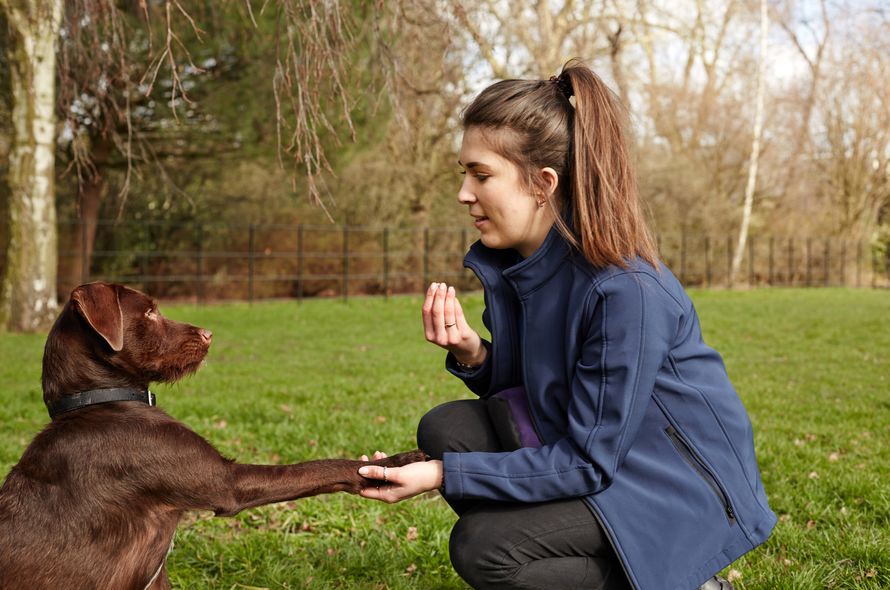
Short-term Boarding for Pets in the UK
If you find yourself needing short-term boarding for your cat or dog, there are options available to ensure your pet is well taken care of. While having friends help with pet care is ideal, if that’s not possible, you can rely on professional kennels in the UK that specialize in short-term boarding services. These kennels offer a safe and comfortable environment for your pets and typically charge around £10-£30 per day, depending on the size of your pet and the frequency of dog walks. Many of these kennels are located on farms, which provide ample space for dogs to roam and explore.
When booking a kennel, it’s important to bring along your pet’s vaccination certificate to ensure that they are healthy and protected during their stay. To find a suitable kennel near your home, a simple Google search for “Kennels near me” will provide you with a list of options. Feel free to call these kennels for more information and to seek advice on the best arrangement for your pet’s boarding needs.
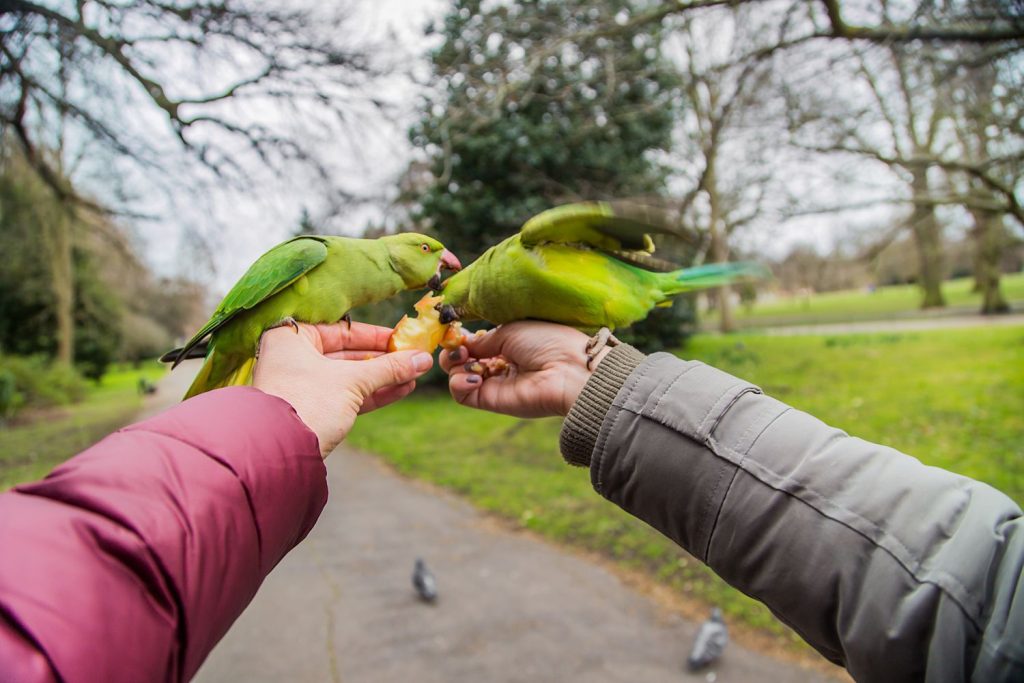

Tips for Keeping a Pet in the UK
Consideration before getting a pet
It’s important to thoroughly think through the decision of getting a pet. Assess whether you have the energy and patience to provide long-term care, if you can arrange for short-term boarding when returning to your home country, and if you are ready to settle down in the UK, among other factors.
Check your housing policy
Before renting a property, particularly flats, make sure to verify whether pets are allowed. Many rented houses have restrictions on keeping pets, so it’s crucial to know the rules beforehand. If you are a student in the UK, it’s important to note that most student accommodations do not allow pets. However, there may be exceptions, so it’s worth being patient and communicating with your accommodation provider well in advance to inquire about their pet policies. (Discover the Best Dog-Friendly Accommodation in London)
Adoption conditions
If you are on a student visa and planning to adopt a pet from a shelter, be aware that it may be more challenging. Shelters consider factors such as the pet’s future after you graduate and whether a suitable arrangement can be made.
Financial preparedness
Owning a pet can come with unexpected expenses, especially when they require veterinary care. It is essential to have a certain financial foundation to cover potential medical costs, which can amount to hundreds of pounds. The UK Animal Welfare Act mandates pet owners to take responsibility for their pets’ well-being, ensuring their needs are met and seeking timely medical attention when necessary. Veterinarians in the UK also provide 24-hour emergency services, allowing pet owners to receive appropriate treatment even outside regular hospital hours.
Treat pets well and prevent cruelty
It is crucial to treat pets with kindness and avoid any form of cruelty. Cases of mistreatment can lead to legal consequences. For instance, a report highlighted a situation where students in Plymouth were fined over £4,000 and received a conditional discharge sentence for neglecting to seek timely medical attention for their puppy. They were also banned from adopting pets for five years due to the animal cruelty involved. Leaving a dog in a hot car during summer months can also result in legal action, as the high temperatures inside the vehicle can cause heatstroke and potentially be fatal for the dog. Passersby have the right to report such incidents to the police, potentially leading to animal cruelty charges for the owner if the situation is confirmed.

Conclusion
We hope that this guide has provided you with valuable insights and practical tips for keeping a pet in the UK and becoming a responsible and loving pet owner. Remember, owning a pet is a lifelong commitment, and it comes with its share of joys, challenges, and responsibilities. By adopting or buying a pet, providing them a safe and nurturing environment, and seeking proper care, you’ll create a bond that will last a lifetime.
FAQ
The ability to keep a pet in student accommodation in the UK varies depending on the policies of the specific accommodation. Some student accommodations may allow pets, while others may have restrictions or prohibit them altogether. It’s important to check with your accommodation provider or review the terms of your rental agreement to determine if pets are permitted.
It depends on the rental agreement. Many landlords have specific pet policies, and some may not allow pets at all. It’s important to check with your landlord or read the rental agreement to determine if pets are permitted.
Generally, you do not need a license to keep common household pets like cats or dogs. However, some specific pets, such as certain exotic animals, may require a license under the Dangerous Wild Animals Act.
While not mandatory, pet insurance can be beneficial. It helps cover unexpected veterinary costs and provides peace of mind. It’s essential to research different insurance providers, compare coverage options, and choose a policy that suits your needs and budget.








